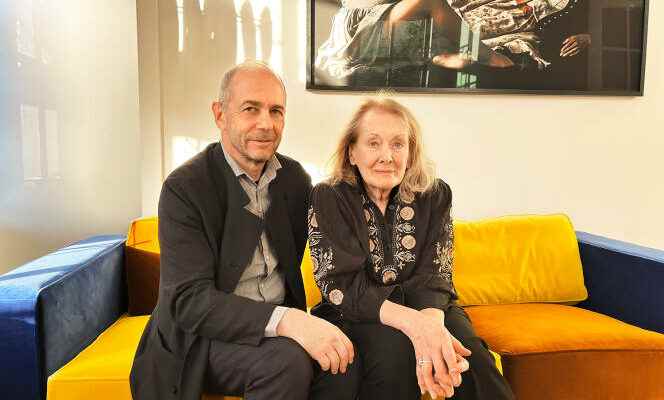For thirty years, Daniel Simon has published the work of Annie Ernaux in the United States. The man is in love with France. He wants to start the telephone conversation by recalling the few years he spent in Paris in his youth. History, perhaps, to interrupt the whirlwind in which his publishing house has been since October 6 and the awarding of the Nobel Prize for Literature to the French writer.
“When I discovered ‘Une femme’ and ‘La Place’, I was immediately struck by its limpid style, where an underlying violence still hovers. »
At the turn of the 1970s and 1980s, Daniel Simon lived in a room on rue Mabillon, in Saint-Germain-des-Prés (“ opposite Isabelle Adjani’s apartment”, he says). He washed the dishes at Petit Vatel, a neighborhood restaurant, played music in the street with friends, went to listen to lessons from Michel Foucault and Roland Barthes at the Collège de France…
An enchanted parenthesis before starting his life as a publisher in New York. Thanks to Four Walls Eight Windows, a small structure he set up with a friend in 1986, he launched himself with the latest works of the American writer Kurt Vonnegut and the books, long out of print, by Nelson Algren (died in 1981 and mainly known in France for having been the disappointed lover of Simone de Beauvoir).
As for Annie Ernaux, winner of the Renaudot prize in 1984 for her fourth novel, The place, its name remained unknown to the English-speaking public until the early 1990s, when a handful of small publishing houses began to translate it. In 1989, a French friend advised Daniel Simon to take an interest in this writer.
“He told me it would be perfect for me, he remembers. Indeed, by discovering A woman and The place, I was immediately struck by his limpid style, where an underlying violence always hovers. » He published the first two years later, under the title A Woman’s Story. In 1995, ready to strike out on his own, he founded his own publishing house, Seven Stories Press, and took on seven of his founding authors. Among them, Annie Ernaux.
Hexagonal tropism
Furiously independent, Daniel Simon assumes his status as an outsider in the face of the major Anglo-Saxon publishing groups. “I like writers who don’t care what they think
others and who turn their writing towards ignored sections of society, he explains. When I acquire rights, I am often the only one to make an offer. » Over the years, faithful to his French tropism, he added novels by Martin Winckler, Lola Lafon, Emmanuelle Bayamack-Tam and François Bégaudeau to his catalog.
You have 49.04% of this article left to read. The following is for subscribers only.
